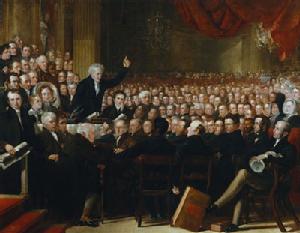Women and Anti-Slavery
Seminar Questions
- To what extent did the anti-slavery movement rely upon the specific contribution made by women?
- Was the anti-slavery movement a political or philanthropic movement?
- What is the connection between anti-slavery movements and feminism?
- Do anti-slavery poems tell us more about the authors than about slaves and slavery? Is poetry a useful medium to examine contemporary views on politics?
Key reading
Jennifer Keith, 'The formal challenges of anti-slavery poetry', Studies in Eighteenth-century Culture, 34 (2005)
Claire Midgley, 'Anti-slavery and feminism in nineteenth-century Britain', Gender and History, 5 (1993)
Further Reading
L and R Billington, ‘A Burning Zeal for Righteousness’ in Rendall (ed.), Equal or Different
K Corfield, ‘Elizabeth Heyrick: radical Quaker’ in Malmgreen (ed.), Religions in the Lives of English Women
Kate Davies, 'A moral purchase: femininity, commerce and abolition' on Elizabeth Eger, Charlotte Grant, Cliona O Gallchoir and Penny Warburton (eds), Women writing and the public sphere (Cambridge, 2001)
Kathryn Kish Sklar and James Brewer Stewart (eds), Women's rights and transatlantic antislavery in the era of emancipation
Clare Midgley, Women against Slavery. The British Campaigns, 1780-1870
Simon Morgan, 'The Anti-Corn Law League and British anti-slavery in transatlantic perspective, 1838-1846', Historical Journal, 52 (2009)
Simon Morgan, A Victorian Woman's Place
Jane Rendall, Origins of Modern Feminism
Vron Ware, ‘An Abhorrence of slavery’ in Ware (ed.), Beyond the Pale. White Women, Racism and History

